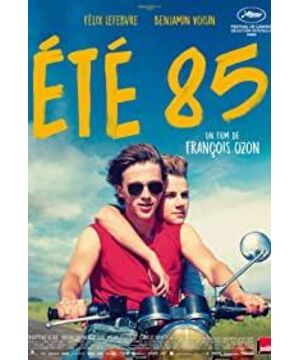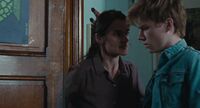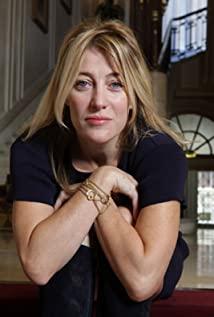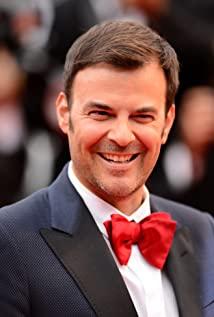After nearly half a year of industry shutdown, the film finally ushered in a comeback this summer. Movie theaters around the world have resumed work one after another, and fans are celebrating the moment in different ways.
In France, although theaters resumed operations as early as the end of June, a series of restored classics is more of a flashy event. It was not until the French National Day on July 14 that the theaters ushered in the first concentrated release of new films, which seems to mean that the film has truly returned to the lives of French people. Among them, the most concerned is Ou Rong's new work - "Midsummer of 1985".
Affected by the epidemic, after the Cannes Film Festival in 2020 was cancelled for the second time in history, it finally announced a list of 56 shortlisted films, and it ended in a hurry. But as far as these new works alone are concerned, it is enough to bring direction and hope to those fans who have been waiting for it in the new year. As the first Cannes-certified "blockbuster" released this year, "Midsummer of 1985" has attracted a large number of fans, including me, who came to the theater to see the real content. However, the experience after watching it failed to become the beginning of this year's Cannes or the movie "Midsummer" like the "Midsummer" in the title.
As a well-known French director of the Mesozoic era, Ou Rong also has many fans in China who are in love with his works. Although to this day, as a frequent visitor to the three major European film festivals, Ou Rong's films have never been able to escape the fate of running with him. But only one "Into the House" is enough to prove his skill as a director.
In fact, throughout Ou Rong's films over the years, there are many distinctive French features. Strange love stories have always been a very important subject category in French art films, and even in the whole of Europe, because they often contain rich and intense emotional conflicts between characters. As the most well-known author label, the breadth of Ou Rong's films can even be described as "encyclopedia".
The film "Summer of 1985" begins with the arrest of the protagonist Alexis by the police. As the police and lawyers investigate him, Alexis recalls the painful youth of his love and separation with David.
As a channel for the realization of the alternate between two time and space, the use of letters appears again in this new work. Perhaps it stems from the deep-rooted attachment of the French to words. Letters are another important element of Ou Rong's films besides strangeness.
Whether it is the use of words to narrate the story to break the boundaries of reality in "Into the House", or the carrier of the ambiguity of social issues like letters in "Thank God". The existence of words makes Ou Rong's works add more interpretation space in addition to the original audio-visual dimension, which is undoubtedly the unique charm of film as a composite art form. But unfortunately, the unsatisfactory performance of "Midsummer of 1985" is precisely due to Ou Rong's failure in these two aspects of housekeeping.
As soon as the trailer of "Midsummer of 1985" was released, there was no shortage of views in public opinion that compared it to "Call Me by Your Name". But compared to the latter's exploration of the character's self-discipline, the detached relationship between the characters, and the unity of the character setting and the background environment, Ou Rong's new work seems too thin.
In fact, love stories between beautiful teenagers are not uncommon in European movies. This kind of theme that integrates LGBT and youth pain obviously has more complex and rich exploration space. It is a pity that the shaping of the diversity of characters has never been Ou Rong's professional strength as a director. Charismatic and bohemian David, and shy and sensitive Alexis. The director's description of the identity of the two in their emotional relationship can only be shown in such a stereotyped image.
Therefore, the use of "Qiqing" has become Ou Rong's way to solve this problem. Strong drama, often enough to lead the audience to empathize with the character's motives. For example, in "Into the House" is the voyeuristic desire that everyone has, and in "Thank God", it is the individual's pursuit of justice after experiencing childhood sexual assault trauma.
On the other hand, "Summer of 1985", "Qiqing" is only after the two protagonists quarreled about emotional conflicts, one died in a car accident, and the other ignored the "tomb tomb" that offended religion in order to fulfill his promise. These passages are more of a turning point in the completion of the drama and the emotional catharsis of the characters, and are not enough to become the core events that support the development of the whole film. So when the theater lights came on, the audience recalled their impressions of the film, only those little moments of sugar sprinkles and innocuous juvenile pregnancies remained.
On the other hand, due to the minority nature of LGBT, related love stories often need to have stronger character emotions than general romance films. Whether it's "Spring Comes Together" and "Merry Christmas on the Battlefield" in the early years, or "Please Call Me by Your Name" in recent years, the depiction of emotions is often more meaningful than physical. Therefore, it is necessary for the film to find an outlet that can be accepted by the audience in the catharsis of the characters' emotions. Because of its own intuitive characteristics, letters could have become a tool for "Summer 1985" to carry the characters' emotions. Between the alternation of time and space, the emotional interaction of characters across time and space is realized.
It's a pity that in the end, Ou Rong just used letters as props to break the linear narrative to create suspense for the "arrest incident" proposed at the beginning of the film. Reading between the lines, the audience struggles to capture Alexis' irreplaceable affection for David, or the heart-wrenching impact of David. Instead, it focuses more on the suspense created by the ending. As for the love story that lost the chemical reaction, the director can only use the color symbol of Abaose between the sea and the beach in Normandy to whitewash the romance without soul.
As a frequent visitor to the film festival, Ou Rong seems to have never been able to enter the list of first-class directors, which is not unrelated to his ups and downs in his creative state. Ou Rong's familiar creative method may be able to establish a more effective channel of connection between the work and the audience. But the creation of an author's film has always been from the inside out. In addition to the inherent creative inertia, there is a lack of more effective ways and means for the presentation of film texts.
As the first official Cannes-certified work in 2020, "Midsummer of 1985" is far from allowing a movie that has been away for a long time to return to "Midsummer" immediately. But it more represents hope, in the days when the movie returns to life, we will definitely see more new works until the arrival of another movie "Midsummer".
View more about Summer of 85 reviews











